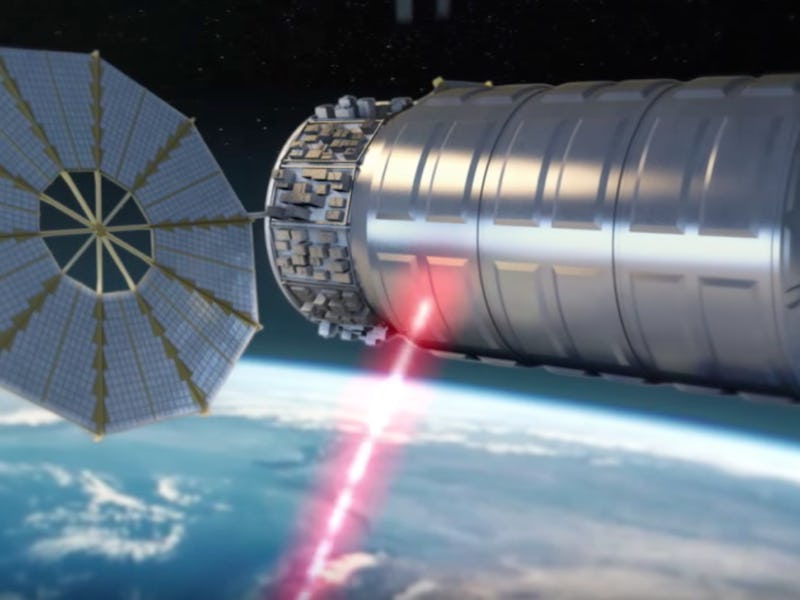NASA Just Lit Another Cygnus Spacecraft on Fire, for Science

Is NASA comprised of a bunch of pyromaniacs? Probably not, but it certainly has a penchant for setting spacecraft on fire. The agency initiated a controlled burn aboard the private cargo spacecraft Cygnus on Monday — the second of three planned Saffire experiments that will help scientists study how fires spread across spacecraft to make things safer for future astronauts.
Cygnus, an unmanned vehicle, left the International Space Station after nearly a month-long stay for a resupply mission to facilitate the burn. With the test complete, the spacecraft will join its predecessor and be head for Earth to be consumed by the atmosphere.
Saffire is a kind of weird fake acronym for Spacecraft Fire Experiment. This second fire was actually a series of smaller fires, as opposed to the larger first and proposed third experiment. Saffire-I was the largest controlled space burn to date. While that burn, along with the upcoming Saffire-III, are meant to quantify the size and speed of flame spread in low gravity spaces, Saffire-II was focused on pinpointing oxygen limits the flame might be subject to — essentially determining at what point the fire might self-extinguish. The full experiment marks the first time that scientists have been able to test and observe the process by which fires spread through enclosed artificial environments in space.
This second trial in the Spacecraft Fire Safety Series builds on the data captured during Saffire-I and expands the test portfolio with new materials,” NASA announced.
The nine samples in the experiment kit include a cotton-fiberglass blend, Nomex, and the same acrylic glass that is used for spacecraft windows. After Cygnus departs the station, and before its destructive reentry to Earth, mission controllers on the ground will remotely ignite the samples.
NASA said it got more than 100,000 images from the burn aboard the Orbital ATK-designed Cygnus, though it looks like we’ll have to wait a bit longer for their release.